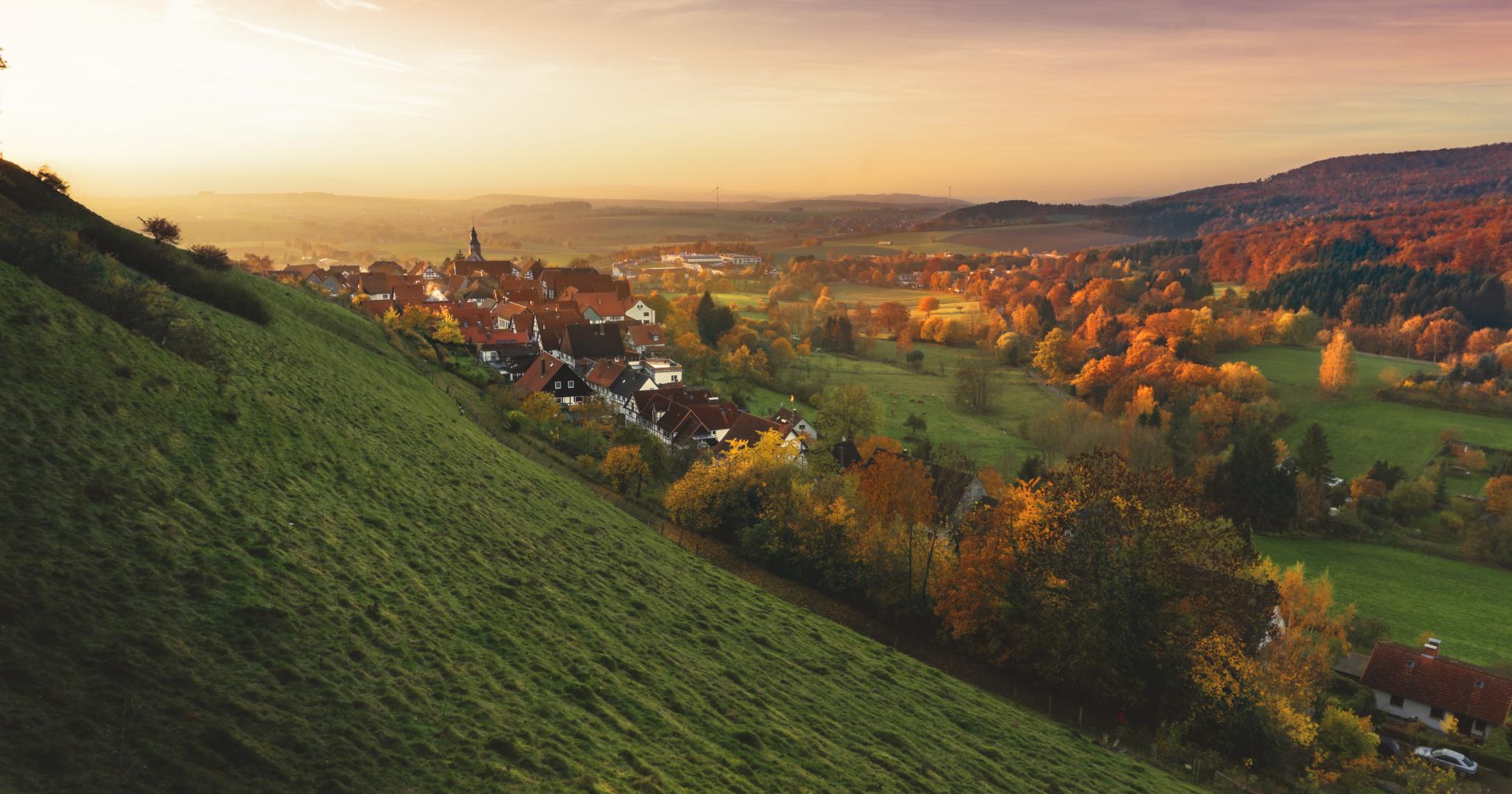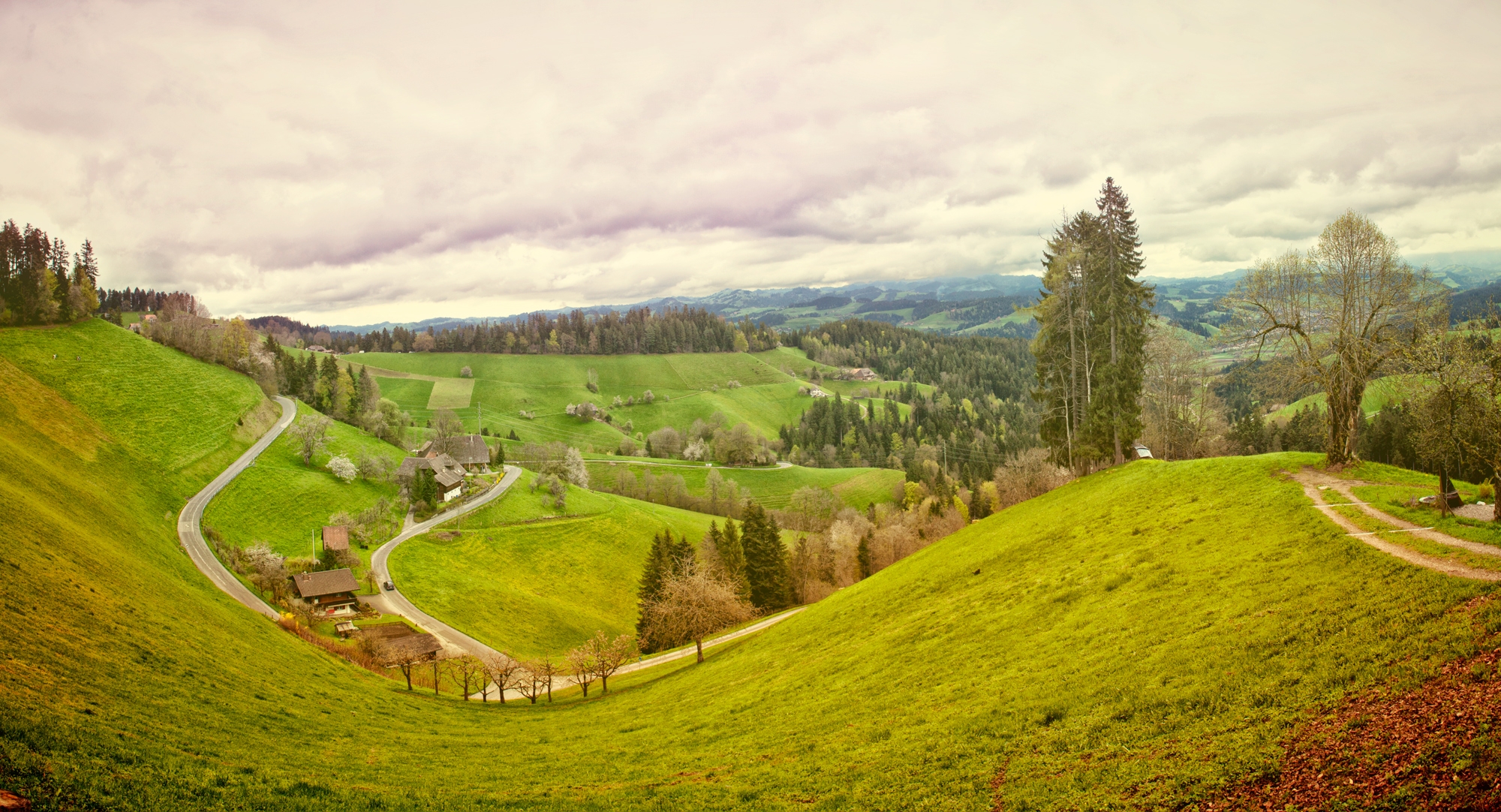Where we came from?
Cooperation of the research institutions under the European Rural Development Network (ERDN) continues the idea of the “European Rural Development” research network, launched by Dr Gerhard Heilig from the International Institute for Applied Systems Analysis (IIASA), Laxenburg, Austria, and a number of European research centres, during the workshop entitled “European Rural Development. Problems, Chances, Research Needs” organised by the IIASA, Polish Academy of Sciences and IAFE-NRI (May 7-9, 2001).
Check the Invitation to this event by G. Heilig as well as Agenda and the List of Participants
The idea was that to associate CEEC research centres with the already existing at IIASA comprehensive research project “European Rural Development” (ERD), aimed in developing the Europe-wide level research network. The ERD encompassed, as a distinct sub-network, the group of institutions and scholars from the Central-Eastern European accession countries, with the Polish sub-network being an integral part. ERD network’s research was to be incorporated in the 6th Framework Programme of the EU. Check the Rationale for Polish Sub-Network of ERD.
In 2002, the project to build a broad international rural development network by IIASA was suspended because of technical issues. This inclined research institutions from Poland and other Central-Eastern European Countries, gathered around the IAFE-NRI, to continue the efforts of the ERDN. Consequently, a number of research centres prepared “Expression of Interest” and submitted it to the European Commission. The EOI contained a request to add a new research measure on European rural development to the Thematic Priority 1.1.6 of the 6th EU Framework Programme (to be implemented through the instrument of “Networks of Excellence”). Check the Expression of Interest.
At the same time, the IAFE-NRI with six other Polish research institutes (supported by 12 research centres from Central-Eastern European Countries, i.e. from Estonia, Latvia, Lithuania, the Czech Republic, Slovakia, Hungary and Romania) applied for financial support for the development of ERDN to the Ministry of Science of Poland (the State Committee for the Scientific Research). By way of decision no. 590/E/2002 of the Ministry, they were granted support for 2002-2004 (extended to 2005) as part of the research task: International cooperation in the form of the scientific network “Rural development in the Central-Eastern Europe”. The Network, additionally supported with membership fees of the Polish institutions, could grow, enable exchange of knowledge and experience of its members, and organise its first international research seminars. Check the decision of the Ministry of Science (in Polish).
The IAFE-NRI and its team play a significant part in the Network’s sustainability. It is the coordinating institution, supporting the ERDN’s administration, printing of the yearbook and on-time organisation of conferences and other activities. Professor Andrzej Kowalski, Director of IAFE-NRI, personally supported the idea of international cooperation under the Network, thus helping to run the network even when the external funds were lacking.
Dr Zbigniew Floriańczyk was the first coordinator and general secretary of the ERDN between 2002 and 2012. Next, Dr Paweł Chmieliński was tasked with the job as from 2012.
Here is research study describing the ERDN and its members in 2010: Muilu, T., Kotavaara, N., 2010. Networking rural expertise, Rural Areas and Development, 7(2010): 51-66,
and presentation of the Network as it was in 2008: Voicilas, Dan M., 2008. The Experience of the European Rural Development Network (ERDN) from Idea to Practice, Agricultural Economics and Rural Development, vol. 5(1-2): 39-44.
As part of cooperation within the ERDN, a number of successful proposals of the research projects were drawn up by our Members and submitted under the EU Framework Programmes (e.g. FARO EU, CEEC AGRIPOLICY, COMPETE, PERCEIVE). ERDN is an active part of BIOEAST (Central Eastern European Initiative for Knowledge-based Agriculture, Aquaculture and Forestry in Bioeconomy) initiative, ERDN representatives were involved in the development of the network and ERDN was presented to BioEast as a good example of successful cooperation in a bottom up research network in CEECs.
Research outcomes of the Network members and submitted works are published in the ERDN open-access, peer-reviewed yearbook “Rural areas and development”.
Now the ERDN is one of leading research initiatives in Central-Eastern Europe enabling knowledge transfer between the EU countries, the Eastern Europe and Western Balkans. Our plan for the future is to develop and enlist new members from Eastern Europe and Balkans, but also other parts of the world.
The 2002 founding members of the ERDN from Poland included:
Institute of Agricultural and Food Economics (IAFE)
Institute of Geography and Spatial Organization, Polish Academy of Sciences (IGiPZ PAN)
Systems Research Institute, Polish Academy of Sciences (IBS PAN)
Institute of Rural and Agricultural Development, Polish Academy of Sciences (IRWiR PAN)
Institute for Land Reclamation and Grassland Farming (IMUZ)
Institute of Soil Science and Plant Cultivation (IUNG)
Institute for Building, Mechanisation and Electrification of Agriculture (IBMER)
At the time of formation of the ERDN key associated members included:
International Institute for Applied Systems Analysis (IIASA), Laxenburg, Austria
Research Institute of Agricultural Economics (AKI), Budapest, Hungary
Federal Institute of Agricultural Economics (AWI), Wien, Austria
Institute of Agricultural Economics – Romanian Academy, Bucuresti, Romania
Institute of Geography, Slovak Academy of Sciences, Bratislava, Slovak Republic
Research Institute of Agricultural Economics (VUZE), Prague, Czech Republic
Lithuanian Institute of Agrarian Economics (LAEI), Vilnius, Lithuania
Latvian State Institute of Agrarian Economics, Latvia
Institute of Landscape Ecology of the Academy of Sciences, Ceske Budejovice, Czech Republic
Institute of Geography, University of Oulu, Finland
Rural Development Centre of the St. Stephan University, Gödöllö, Hungary
University of Tartu, Estonia
University of Matej Bel, Slovakia
Centre of Regional Research, Hungary
Arkleton Centre for Rural Development Research of the University of Aberdeen, Scotland, UK
Pellervo Economic Research Institute, Helsinki, Finland
Norwegian Institute for Urban and Regional Research at HiOA, Oslo, Norway
The Norwegian Institute of Land Inventory, Norway
Research Institute of Agricultural Economics, The Hague, Netherlands
IAMO, Halle, Germany
The above-mentioned research centres constitute the foundations of the European Rural Development Network.


